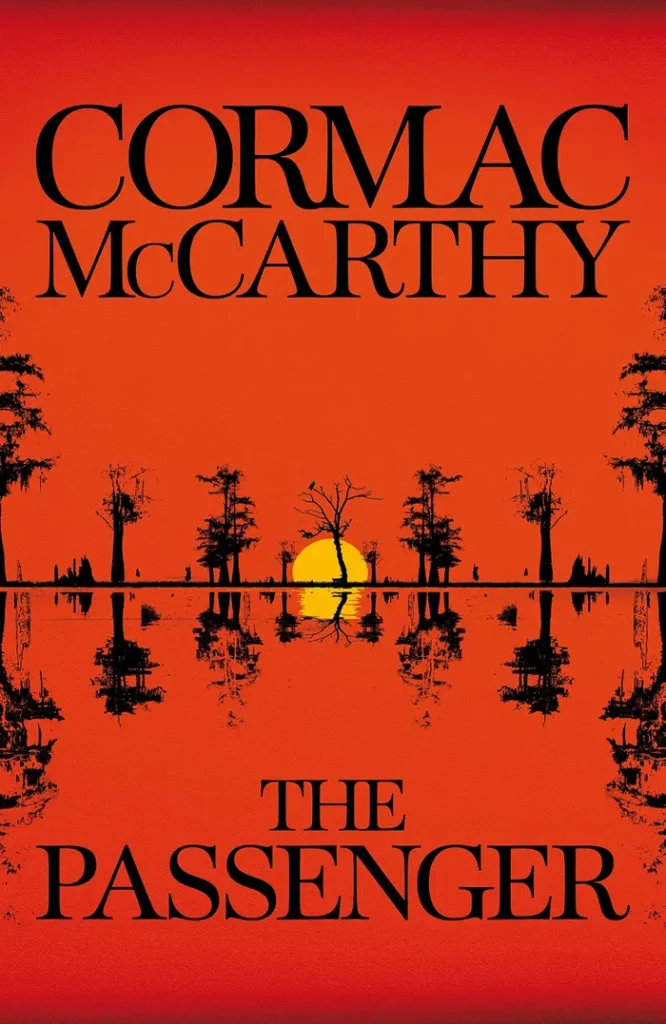

One of America’s great novelists passed away this week.
Here is National Public Radio:
Cormac McCarthy, one of the great novelists of American literature, died Tuesday of natural causes at his home in Santa Fe, N.M. He was 89. His death was confirmed via a statement from his publisher.
McCarthy won the Pulitzer Prize in 2007 for his stunning, post-apocalyptic, father-son love story called The Road. He wrote most compellingly about men, often young men, with prose both stark and lyrical. There was a strong Southwestern sensibility to his work.
“McCarthy was, if not our greatest novelist, certainly our greatest stylist,” says J.T. Barbarese, a professor of English and writing at Rutgers University. “The obsession not only with the origins of evil, but also history. And those two themes intersect again and again and again in McCarthy’s writing.”
Back in January, we published Paul Luikart‘s review of McCarthy’s 2022 novel, The Passenger. Here is a taste of that review:
Upon even a whispered pronunciation of the name, “Taylor Swift,” 90% of the students I’ve had the privilege to teach in the last few years have responded thusly: They stop whatever they’re doing, point their faces heavenward, and squeeze their eyes shut. Picture Bernini’s The Ecstasy of St. Teresa and you have some idea what I mean. When they eventually unfreeze, they’re apt to say, in reverent tones, “That woman. Is. A genius.” Then, unbidden, they begin to quote Swift’s deepest cuts and some of these students who are more musically inclined may begin to sing. So why do I share this?
Because this is my review of the first of Cormac McCarthy’s latest novels, The Passenger (the other being Stella Maris) and it requires a massive caveat: I am them. Just replace Swift with McCarthy. I’d happily review his shopping list. (“Eggs. Milk. Bone-handled skinning knife.” BRILLIANT!) Take this, then, with a grain of salt. Matter of fact, go ahead and upend that saltshaker in your mouth. You’ll just have to believe me when I say that this is as objective as I can make it. Okay. All of that out of the way, I offer the following on Cormac McCarthy and The Passenger . . .
The view from the clouds (hell, even the view from a low-hanging tree branch) makes it clear that each of us is sinking into oversaturated awarenesses of our own individualities. The more we make personas out of our unique personhoods, though, the less we’re able to grapple with humanity’s common context: We’re marked for death. We flee inwardly and always away from the constant lo-fi buzz of our impending ends. The very thing that should unite us completely—past, present, and future, forever—is that which we spend most of our lives avoiding even thinking about.
In The Passenger, McCarthy pounces upon this flippant perspective on mortality. Though, to be fair, there are probably only two ways to arrive at an actual and true understanding of it. The first, of course, is to die. I might be so bold as to say the second is to read Cormac McCarthy but, as I am attempting to keep fan-boying to a minimum, I’ll say that McCarthy typically traffics in life and death and not only life and death but in the terrible pain of being alive and in the terrible relief that death brings.
But does our flippancy at least make us pitiable in the eyes of the universe? The Passenger reminds us that the universe doesn’t give a shit. That’s not quite right. Can’t give a shit. Our problem, McCarthy might say, is that since we haven’t properly actualized our upcoming demises, we attribute incarnational qualities to everything else, with the expectation that it—all of it—can somehow pity our plights. That the planet, the solar system, the processes of nature that we barely understand, and the distances between stars our brains are not built to fathom, could have mercy on us. Is a plutonium atom subject to physical forces? Yes. Is it subject to, for example, the forces of love? It can’t know what that means.
The nail upon which The Passenger hangs—and, I’d argue, every single word Cormac McCarthy has ever written or is ever likely to write—is a piece of dialogue the Thalidomide Kid delivers about three quarters through the novel. The descriptor “Thalidomide” is used precisely once, at the beginning of the book; for the rest of the novel he is only “the Kid.” Some hay has been made of the fact that McCarthy’s protag in Blood Meridian is also called “the Kid,” but a literary application of Occam’s razor reveals that “the Kid” is mostly just a cool name for a character, one certainly worth re-using some thirty-seven years on.
The (Thalidomide) Kid is a snarky wreck, bald and burnt, with fleshy, seal-ish flippers instead of hands. He’s also not real. The Kid is a hallucination who torments Alicia Western, Bobby Western’s sister, and Bobby is The Passenger’s protagonist. Bobby is sought by a pair of agents from an unnamed Kafkaesque government agency who give vague-at-best reasons for their pursuit. In Bobby’s ensuing flight and slo-mo loss of everything, he nearly goes insane. The Kid, then, appears to Bobby on a dark Louisiana beach, just as a massive storm is breaking over the Gulf. Amid their conversation about Alicia, the Kid says, “You got people who think it would be a good idea to discover the true nature of darkness. The hive of darkness and the lair thereof. You can see them out there with their lanterns.”
The Kid means to ridicule. But who is leading that pack of lantern-swingers?
Why, Cormac McCarthy, of course. Writing, especially literary writing, doesn’t make a hell of a lot of sense given that one day we’re all going to die. We’ve got our individual expiration dates and we’re barreling toward an extinction of the species with surprising fervor. The only logical, reasonable, rational response is to collapse on the floor in an endless wash of tears.
Read the rest here.
RIP